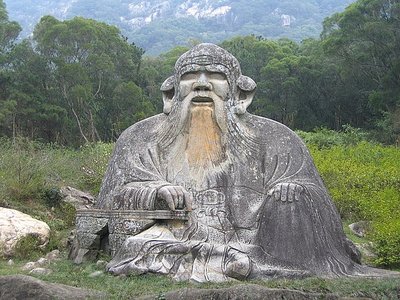
Quanzhou in east China's Fujian Province was the country's major port for foreign tradeduring the Song and Yuan dynasties (960-1368).
If a resident from ancient Quanzhou Bay was magically teleported to the modern city, theywould be awed by the bustling streets, lights and noise, but they might also find somepeace in local temples where the same religions are practiced to this day.
Foreign traders and missionaries, drawn to the starting point of Maritime Silk Road, wereenchanted by what they found there and often elected to stay, bringing with them an arrayof religions, traditions and cultures.
Archeologists tell us that, in its heyday, Buddhism, Christianity, Hinduism, Islam andTaoism thrived side-by-side in Quanzhou.
Today, the centuries-old temples and mosques, many with a mixture of artistic styles, stillreceive believers and pilgrims from home and abroad. Now, with a local governmentdetermined to protect and renovate these unique edifices, a future which was oncecrumbling seems guaranteed.
Zhang Lianzhu has worked for 23 years in Quanzhou's Qingjing Mosque, the only survivingmosque in China from the Song Dynasty. She says that more and more people visit themosque every year.
"Now, about 200 people come for Friday prayers. A few years ago, there were rarely morethan 70," she said.
Zhang attributes the rise to better publicity and financial support from the government. In2015, Quanzhou was one of the four venues outside Beijing to host the Spring FestivalGala, China's biggest annual TV event.
The government, which gave the mosque around 200,000 yuan (about 29,000 U.S.dollars) at the turn of the century, now donates four times that much, according to Zhang.
The mosque has always been important to Chinese Muslims, Zhang said. Each year, themosque receives around 200,000 visitors from inland provinces and regions with largeMuslim populations.
"These Muslims have a saying: If you cannot afford to travel to Mecca, go to Quanzhouinstead," Zhang said. "Some go so far as to bottle our water used for cleansing beforeprayers and take it back home."
Many come to Quanzhou not just to pray, but to visit the Islamic cemetery, where twoIslamic saints from 7th-century Quanzhou are said to be buried.
Zhang, a Muslim herself, said the city is well-known for its rich history of cultural diversity. "It is famed as a 'museum' of religions," she said.
Quanzhou Maritime Museum has the largest collection of Islamic and Hindu gravestones,capstones and inscriptions in the country, according to Chen Shaofeng, a historian at themuseum.
Lin Yongquan, a priest at the Catholic church in Quanzhou, said there are about 2,000Chinese Catholics in Quanzhou, and around 100 foreigners from India, the Republic ofKorea and the Philippines.
"Many of these foreigners work in local factories," Lin said. "We set up a WeChat group forthem and they talk about anything from religion to their everyday lives."
INTEGRATION
In Kaiyuan Temple, a Buddhist temple built around 685 during the Tang Dynasty, thereare two columns with fragments of a temple dedicated to Hindu God Shiva.
"The interaction of religious cultures was frequent in Quanzhou. Some religious art hasChinese characteristics," said Wu Youxiong, a religious historian.
At the gate of Qingjing Mosque, two stones feature auspicious clouds, a traditional Chinesesymbol.
Back in Yuan Dynasty, the word "Fo" -- the Chinese translation of Buddha -- wascommonly used by local people to describe their own particular god, Wu said.
"The fact that these religions coexisted in harmony in Quanzhou was indispensable tointeraction and integration," he said.
"I love living here as no one treats you differently because of your religious belief," saidHazim Alrikabi, an Iraqi businessman who has been in Quanzhou for 13 years.
Father Lin said religions in Quanzhou share strong bonds today. "I often meet with theheads of our Buddhist and Taoist temples and mosque during our various festivals."

